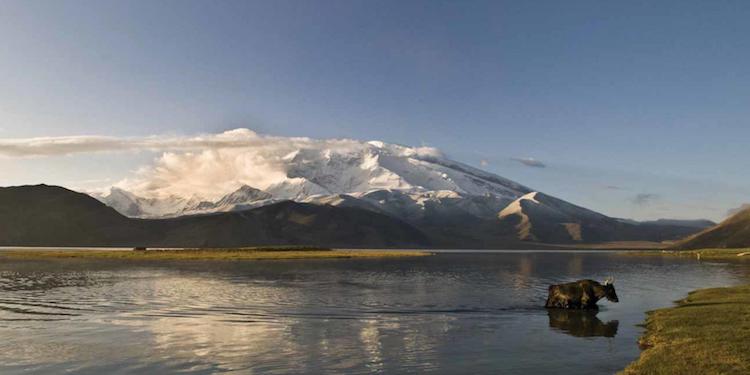
By Ramesh Jaura
BERLIN | ANKARA (IDN) – Profoundly concerned that “desertification and drought are problems of global dimension in that they affect all regions of the world,” the international community adopted the Convention to Combat Desertification (UNCCD) in Paris on June 17,1994. Twenty-five years later, on the World Day to Combat Desertification (WDCD) on June 17 celebrated this year in the Turkish capital Ankara, the ‘Hama Arba Diallo Foundation for the Environment and Education’ has been launched at a special event.
The creation of the Foundation is a tribute to UNCCD’s first Executive Secretary Hama Arba Diallo from Burkina Faso, who left his indelible mark on implementation of the Convention in its first more than a decade – in the face of public prejudices and financial constraints, in spite of Germany having successfully campaigned to have the Convention Secretariat hosted in the “UN City Bonn”.
Diallo’s successor Luc Gnacadja from Benin, whom the World Bank honoured with the 2002 Green Award, took over in 2007 and found new ways and means to implement the Convention.
Monique Barbut from France, who was Chief Executive Officer of the Global Environmental Facility (GEF), followed in his footsteps in 2013. During her tenure at the GEF, the Fourth GEF Assembly listed UNCCD among the treaties for which the facility acts in the role of financial mechanism.
Ibrahim Thiaw of Mauritania, who was appointed by the United Nations Secretary-General as the new UNCCD Executive Secretary in February 2019, brings to the position 40 years of experience in sustainable development, environmental governance and natural resource management. In his previous posts, he served as Acting Director-General the International Union for Conservation of Nature (IUCN), Assistant Secretary-General and Deputy Executive Director of the United Nations Environment Programme (UNEP), and the UN Special Adviser for the Sahel.
Twenty-five years since the adoption of the UNCCD, UN Secretary-General António Guterres has stressed the pressing need for urgent action to protect and restore degrading land in a bid to reduce forced migration, improve food security, spur economic growth and help to address the global climate emergency.
Noting that the world loses 24 billion tons of fertile soil and dryland degradation reduces national domestic product in developing countries by up to 8% annually, Guterres said much remains to be done, and stressed the imperative of combatting desertification as part of our efforts to achieve the Sustainable Development Goals (SDGs).
In his energetic message, titled ‘Let’s grow the future together’, Thiaw said the World Day to Combat Desertification “isn’t just about sand, it isn’t an isolated issue that will quietly disappear, and it isn’t someone else’s problem”. It is indeed about restoring and protecting the fragile layer of land which only covers a third of the Earth, but which can either alleviate or accelerate the double-edged crisis facing our biodiversity and our climate.
“That makes it the problem of anyone who wants to eat, drink or breathe; to make their home in a town, in the country or even in security; to use technology, medicine or infrastructure; to have equal access to work, learning or relaxation. To live,” Thiaw added.
Since the international community acknowledged the central role land plays in that equation and beyond, by creating the UNCCD. Since then, 196 countries and the European Union have signed up to coordinated actions for sustainable land management. They have restored well over five million hectares of land in the Sahel region to produce half a million tons of grain each year.
They have used forests to help farmers in Brazil, Indonesia, China and India improve their crops and water supplies. They have fuelled a land restoration economy in the U.S. to generate around USD25 billion and 126,000 jobs in a single year. And there are similar stories around the world.
However, there are even more stories about how poor land management has degraded an area twice the size of China and shaped a farming sector that contributes nearly a quarter of all greenhouse gases, said the UNCCD Executive Secretary. “There are even more stories about how half the people on this planet are affected by that damaged land or live in urban areas, consuming resources that require 200 times as much land as their towns and cities and generating 70 per cent of emissions.”
For the next 25 years, as the only international treaty dealing with land management, it has its work cut out to turn that around before the population reaches nine billion, he said. But there is no time. “Because unless we rapidly get control of the land that underpins our biodiversity and provides the second largest carbon reservoir on this planet, we will trigger a series of reactions that puts the outcome entirely beyond our control.”
Which is why, Thiaw adeded, the world is determined that by 2030, we will switch from destroying the Earth to making it productive enough to grow a better future for everyone. Success in degrading land will save USD1.3 billion a day to invest in the education, equality and clean energy that can reduce poverty, conflict and environmental migration.
He noted with satisfaction that in recent months, the leading authorities from science, finance and government have sounded the alarm about the very real, very imminent threats from biodiversity loss and climate change. “Better land management does not hold all the answers, but it offers a stepping stone to reach our goals by 2030 and then act as a natural multiplier of their benefits,” the UNCCD Executive Secretary accentuated. [IDN-InDepthNews – 18 June 2019]
Photo: Karakul Lake, Tajikistan. Credit: UNCCD
SUPPORT US in Speaking Out for People, Planet and Peace.
IDN is flagship agency of the International Press Syndicate.
facebook.com/IDN.GoingDeeper – twitter.com/InDepthNews











